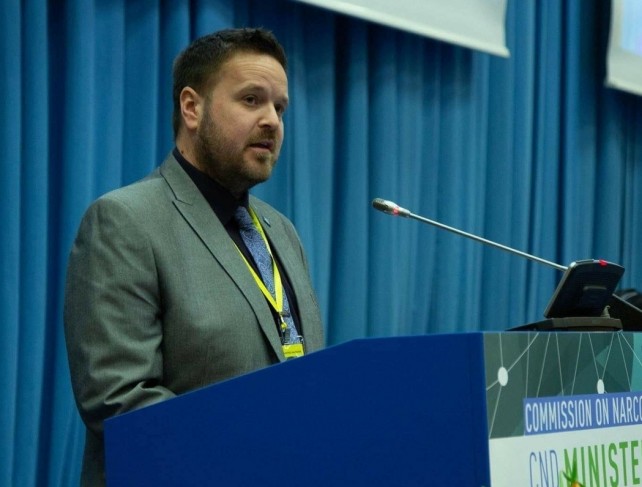The fatal shooting of a teenager by law enforcement during a Thailand drug search has drawn attention to the prevalence of repressive tactics in the country’s anti-drug operations, despite recent progressive reform.
On March 17, a 17 year old activist, Chaiyaphum Pasae, and his roommate were stopped and searched for drugs at an army checkpoint in the northern Thailand province of Chiang Mai. After the soldiers allegedly found 2,800 methamphetamine pills in their vehicle, Pasae was shot and killed after allegedly running away. The soldier said he had acted in “self-defence” because, he claimed, the teenage activist had attempted to throw a grenade at him. Pasae was a well-known local advocate for minority rights, and a vocal opponent of repressive drug policing.
The soldier who killed Pasae has been charged with murder.
Brad Adams, Asia director of Human Rights Watch, said after the incident that “abusive [Thai] officials have long used anti-drug operations to cover their attacks on activists who exposed official wrongdoing or defended minority rights”.
The shooting came as Thailand seemed to reach a potential turning point in drug policy.
In 2016, Justice Minister Paiboon Koomchaya told Reuters that “the world has lost the war on drugs, not only Thailand”, pointing to an alleged increase in Thai drug use, and the number of people incarcerated for drug offences, in recent years. Subsequently, the state altered its drug legislation to reduce punitive measures.
In February 2017, the National Assembly adopted a range of legislative amendments that purported to reduce the repressive nature of Thai drug policy. These included reductions in penalties for the possession, import, export, and production for sale, of drugs.
The new legislation also ends mandatory minimum sentencing for individuals found in possession of a quantity of drugs that exceeds a certain threshold. The International Drug Policy Consortium reports that this amendment gives "broader latitude [for lawyers] to put forward evidence and arguments to contest the presumed supply offence".
While these changes suggest a progressive move in national drug policy, the amendments did not address policing, nor did they abolish compulsory drug detention in Thailand. This is despite the government’s 2015 commitment to transition from compulsory to voluntary treatment services, and the UN urging all countries to dismantle compulsory treatment programs – citing human rights violations.
Indeed, compulsory drug detention centres are linked to a variety of harms in Thailand. A 2016 report by Human Rights Watch claims that Thai police continue to arrest people suspected of drug use, and that many of such detainees spend three to six months in drug detention, “subject to an exhausting regime of exercise and military-style drills”.
Ironically, the fear of being detained in a compulsory centre is actually deterring people with problematic drug use from seeking voluntary treatment.
A 2013 study from the Mitsampan Community Research Project found that patients of a voluntary Bangkok methadone clinic were discouraged from obtaining their medication due to police harassment. One patient described being accosted by a police officer who threatened him with a urine test after he exited the clinic.
“They said, ‘If your urine comes out positive, you’ll be sent to ‘treatment’ right away,” the patient told researchers, referring to compulsory drug detention. “So, I said, ‘such treatment can’t treat drug users.’”
Research suggests that the Thai approach to compulsory treatment is not only leading to human rights abuses, but that it is ineffective too. A 2015 study, also from the Mitsampan Community Research Project, concluded that compulsory drug detention was linked to "short-term cessation and relapse”.
Thai citizens continue to face the threat of police abuse, arrest, and coerced “treatment” for alleged drug use. Even with the government’s relatively progressive steps in drug sentencing, it seems unlikely that it will reduce rates of relapse, overdose, or problematic use while compulsory drug detention and repressive policing prevail unaddressed.


